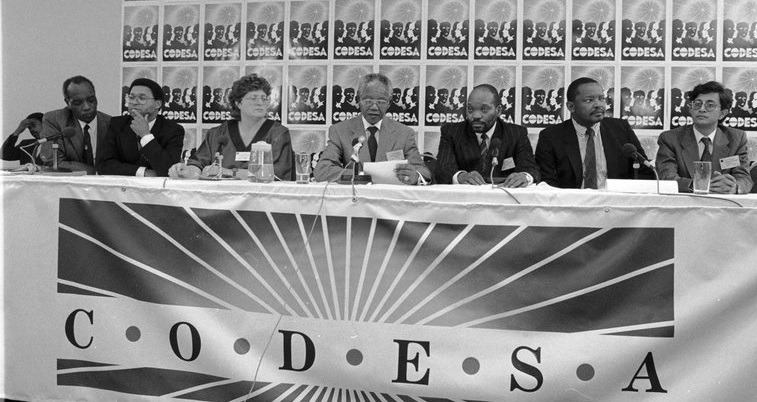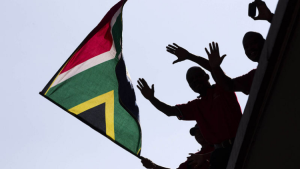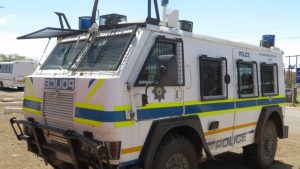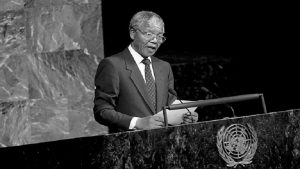For many South Africans, the role of the Afrikaner minority at the convention for a democratic South Africa and the subsequent multi-party negotiation forum is best remembered by the storming of the Kempton Park World Trade Centre by the Afrikaner Weerstandsbeweging (AWB) in 1993.
There were, however, also those who diligently negotiated for the rights of minority groupings in the country.
Negotiating for the rights of minorities in a new democratic dispensation was overshadowed by resistance from outside when the AWB crashed into the Kempton Park World Trade Centre.
In the hallways was a young Pieter Mulder, representing the Volksfront led by Constand Viljoen working into the early hours of the morning to find a way for a peaceful transition that would include the Afrikaners.
Mulder said when the principle of sufficient consensus was introduced, it felt like their efforts were wasted.
“We are just here for the photo at the end because this sufficient consensus they brought in means that of these 27 parties, if the ANC and NP agree they say sufficient consensus and they go on so what are we doing here? You are wasting my time; you want me on the photo for credibility. The Volksfront, Buthelezi, Mangope and Ciskei withdrew and said they will negotiate with the ANC on their own, which we then did.”
Mulder, who later became the leader of the Freedom Front Plus, believed that a peaceful transition was possible.
“I did not buy tinned food from the start because I knew the ANC. I differed with them, still do today about their way of doing things, but I knew it was not in their own interest to destabilise the country, but a lot of people did not believe this. ”
Mulder explains that there is however regret that some of the decisions made in bringing us to a democratic dispensation have fallen by the wayside.
“Part of the period was reconciliation so the national anthem is part sikelel’ and the other. Just after 1994, we had Jan Smuts Lughawe and JBM Hertzog Lughawe in Bloemfontein and the ANC said they don’t like those names. We decided that we will not rename them to specific people. Jan Smuts became Johannesburg International, JBM Hertzog became Bloemfontein International and during this time HF Verwoerd Dam became Gariep. I thought this was a good way of managing reconciliation but in time we reverted, and the agreement was broken, and Jan Smuts became OR Tambo.
On the opposite end of the spectrum was Carl Niehaus, a junior negotiator for the ANC, who now believes that CODESA brought little change.
“The empowerment of the majority of South Africans, especially black and African, and the consequence of that was that we ended up with a negotiating process that didn’t empower all South Africans and I believe that the minority groups or so-called minority groups including also, those who call themselves Afrikaners and Afrikaans speaking, would have benefited much better from the overall empowerment and also the full support and upliftment of the majority of black and African South Africans.”
But what do they believe the future holds for the Afrikaners?
Niehaus and Mulder give their views.
“I fear that there are far too many Afrikaners who still continue to be stuck in the past, who still continue to define themselves first as Afrikaners and then as South Africans. The Afrikaners would have done themselves a huge favor if they reached out collectively, all of it to the majority of South Africans and became part of the South African nation. I fear that parties such as the Freedom Front Plus and those who keep on talking about an exclusive right or minority rights for Afrikaners have done the Afrikaner community a huge disservice,” says Niehaus.
“I ask to be myself in South Africa and I don’t think that is too much to ask. That means my language is important, my school is important, I want to see my children attend Afrikaans universities. I want my church and if these things are in place, I can play a role to make South Africa better. We have wonderful energy to make things better but if you threaten these things as is happening at the moment, then I look after myself first by doing my own things and I have no energy left to worry about others because I need to survive,” says Mulder.
The AWB still runs an office in Ventersdorp.
They did not respond to requests for comment.





